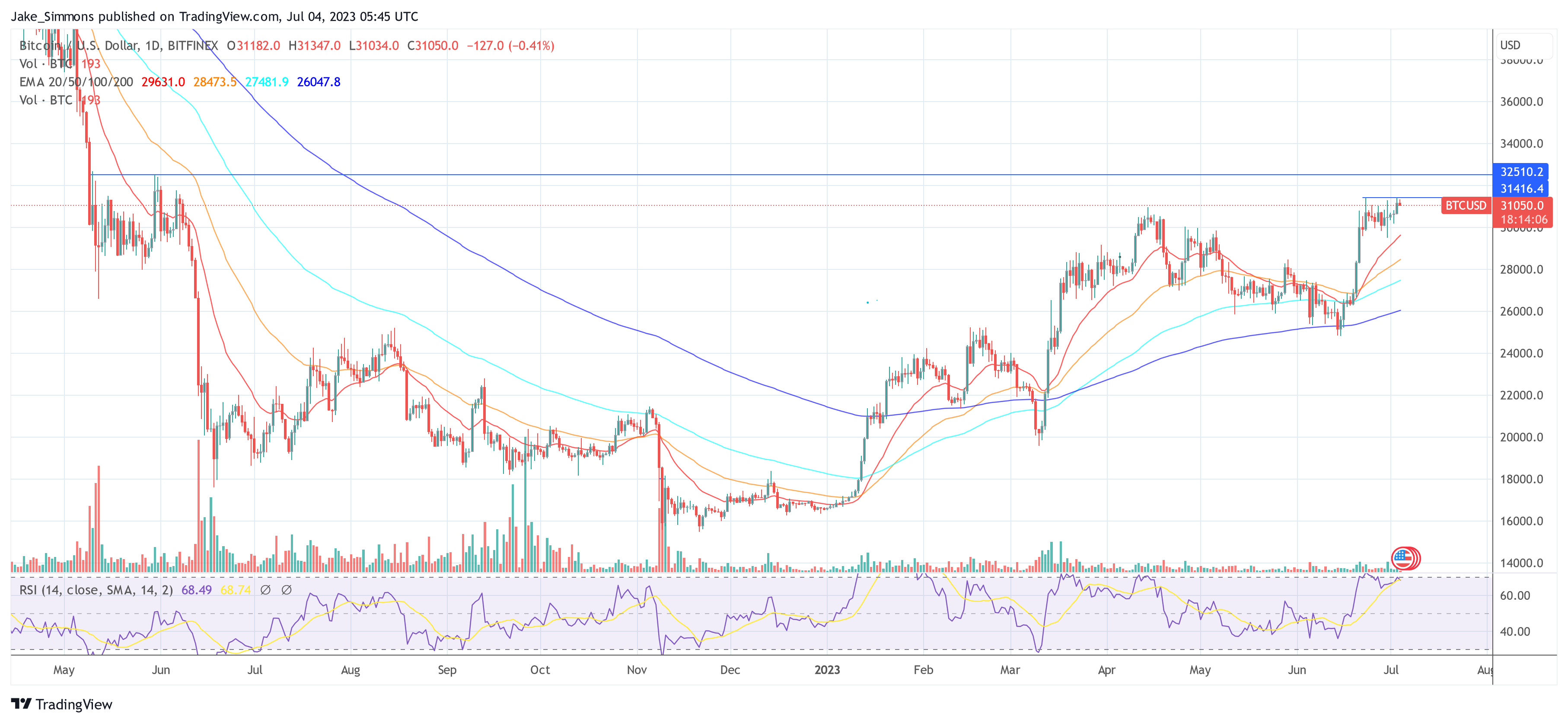Latest news about Bitcoin and all cryptocurrencies. Your daily crypto news habit.
In a recent open letter addressed to Barry Silbert, the CEO of Digital Currency Group (DCG), Cameron Winklevoss, co-founder of the popular cryptocurrency exchange Gemini, has reignited the ongoing saga surrounding the alleged fraudulent behavior of DCG and its subsidiary, Genesis. With over $1.2 billion worth of assets trapped in Genesis, Winklevoss represents 232,000 Earn users who have been severely affected by the actions of DCG.
In a strongly worded letter, Winklevoss accuses Silbert and his company of fostering a culture of lies, deceit, and financial misconduct.
Final Offer For DCG
The letter begins with a reminder of the dire situation faced by 232,000 Earn users, whose funds are locked in Genesis. Winklevoss points out that 229 days have passed since Genesis halted withdrawals, and 174 days have gone by since his last open letter to Silbert. He emphasizes that the actions of DCG have been far from honorable, alleging a culture of lies and deceit that has been well-documented in the public record.
Earn Update: An Open Letter to @BarrySilbert pic.twitter.com/ErsYpcEjQD
— Cameron Winklevoss (@cameron) July 4, 2023
One striking aspect of the letter is Winklevoss’s comparison of Silbert’s conduct to that of Sam Bankman-Fried, the founder of bankrupt FTX. He states, “Not even Sam Bankman-Fried was capable of such delusion. In the end, he at least recognized how his actions had hurt others and attempted to make things right.” This reference to Bankman-Fried, highlights how the bad the situation and how serious the accusations are.
The heart of Winklevoss’s accusations lies in a series of alleged fraudulent actions taken by Silbert and DCG to buy time and avoid taking responsibility for the situation at hand. According to the open letter, in June and July of 2022, Silbert, DCG, and Genesis knowingly misled creditors and Earn users into believing that DCG had absorbed $1.2 billion in losses incurred by Genesis. In reality, no such absorption occurred, and instead, a questionable long-dated promissory note was used to create a facade of financial stability.
Winklevoss contends that instead of seeking a genuine resolution, Silbert has focused on raising capital to pay down a $630 million loan owed to Genesis, aiming to strengthen DCG’s position for future litigation over the promissory note. The prolonged mediation process has further complicated matters, resulting in ballooning professional fees and hindering the relief sought by Earn users.
In response to the ongoing frustration and lack of progress, Winklevoss presents a best and final offer to Silbert, setting a deadline for his acceptance. If Silbert fails to comply within 72 hours (until July 6, 4 pm EST), Winklevoss threatens to proceed with a lawsuit against both DCG and Silbert personally. This legal action would outline Silbert’s personal liability in concealing Genesis’s insolvency and potentially pave the way for Earn users to pursue similar actions.
The situation remains tense and unpredictable as the crypto community watches closely to see how the drama unfolds. The accusations raised by Winklevoss against Silbert and DCG cast a shadow of doubt over the practices of DCG. Remarkably, DCG is the parent company of Grayscale Investments, a leading cryptocurrency asset management firm that holds over 630,000 BTC in its Grayscale Bitcoin Trust.
As the clock ticks down to the 72-hour deadline, the fate of $1.2 billion in trapped assets hangs in the balance, leaving many to wonder how this high-stakes confrontation will impact the cryptocurrency landscape in the days and weeks to come.
At press time, the Bitcoin price hovered below the yearly highly high at $31,416, trading at $31,050.
Disclaimer
The views and opinions expressed in this article are solely those of the authors and do not reflect the views of Bitcoin Insider. Every investment and trading move involves risk - this is especially true for cryptocurrencies given their volatility. We strongly advise our readers to conduct their own research when making a decision.
